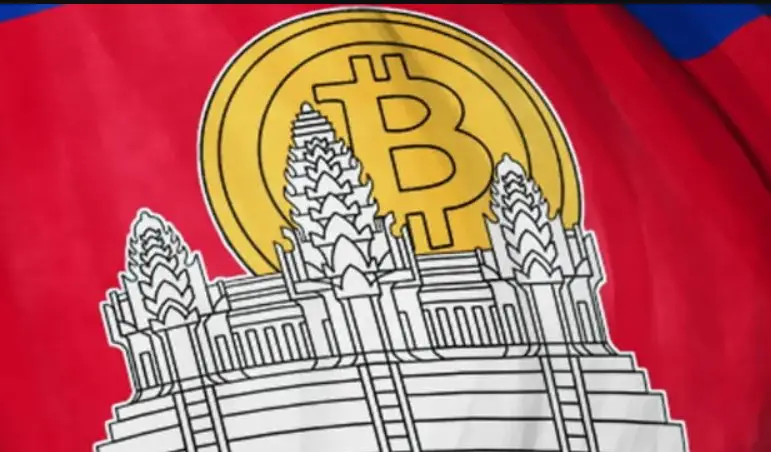Cambodia Introduces Strict Regulations to Guide Cryptocurrency Operations
(Originally posted on : Crypto News – iGaming.org )
The provision of cryptocurrency services by commercial banks and payment institutions has been formally approved by the National Bank of Cambodia (NBC). In line with the bank’s mission to promote a stable financial ecosystem, these services concentrate on stablecoins and other digital assets backed by safe deposits. Bitcoin and other unbacked cryptocurrencies are still prohibited by NBC, though.
Financial institutions that want to do anything involving cryptocurrencies must first get NBC’s consent. Transferring cryptocurrencies between accounts, providing custody solutions, and converting digital assets to fiat currencies and vice versa are all examples of approved services. Institutions are not allowed to use customer-held bitcoin assets for their own operations in order to protect their clients.
Cracking Down on Unregulated Platforms
In tandem with these developments, Cambodia has intensified its crackdown on unregulated cryptocurrency exchanges. Authorities recently blocked 16 major exchange websites, including well-known platforms like Binance, Coinbase, and OKX. This action reflects the government’s commitment to reducing risks like money laundering and fraud, which are often linked to unregulated platforms.
The crackdown extends beyond cryptocurrency exchanges. The Telecommunication Regulator of Cambodia (TRC) also blocked access to 102 websites primarily associated with online gambling. However, enforcement faces challenges as mobile applications for these banned platforms remain accessible.
Despite these strict measures, Cambodia is emerging as a leader in per capita retail cryptocurrency adoption, according to a report by Chainalysis. This demonstrates the public’s significant interest in digital assets, even as authorities impose stringent controls.
New players only. Exclusive 111% Welcome Bonus + 111 Free Spins
The introduction of regulated cryptocurrency services through banks and payment institutions could mark a turning point. These regulated channels promise a safer and more compliant environment for users, potentially increasing adoption while ensuring market stability.







 Bitcoin
Bitcoin  Ethereum
Ethereum  Tether
Tether  XRP
XRP  USDC
USDC  Solana
Solana  TRON
TRON  Figure Heloc
Figure Heloc  Lido Staked Ether
Lido Staked Ether  Dogecoin
Dogecoin  WhiteBIT Coin
WhiteBIT Coin  Cardano
Cardano  USDS
USDS  Bitcoin Cash
Bitcoin Cash  LEO Token
LEO Token  Wrapped stETH
Wrapped stETH  Hyperliquid
Hyperliquid  Canton
Canton  Wrapped Bitcoin
Wrapped Bitcoin  Monero
Monero  Binance Bridged USDT (BNB Smart Chain)
Binance Bridged USDT (BNB Smart Chain)  Chainlink
Chainlink  Ethena USDe
Ethena USDe  Stellar
Stellar  USD1
USD1  Wrapped eETH
Wrapped eETH  Rain
Rain  Hedera
Hedera  sUSDS
sUSDS  PayPal USD
PayPal USD  Dai
Dai  Litecoin
Litecoin  Coinbase Wrapped BTC
Coinbase Wrapped BTC  Avalanche
Avalanche  Zcash
Zcash  Sui
Sui  WETH
WETH  Shiba Inu
Shiba Inu  Toncoin
Toncoin  Cronos
Cronos  USDT0
USDT0  World Liberty Financial
World Liberty Financial  Tether Gold
Tether Gold  Polkadot
Polkadot  PAX Gold
PAX Gold  MemeCore
MemeCore  Uniswap
Uniswap  Mantle
Mantle  Ethena Staked USDe
Ethena Staked USDe  BlackRock USD Institutional Digital Liquidity Fund
BlackRock USD Institutional Digital Liquidity Fund  Circle USYC
Circle USYC  Global Dollar
Global Dollar  Aster
Aster  Falcon USD
Falcon USD  Bittensor
Bittensor  Aave
Aave  Pi Network
Pi Network  OKB
OKB  Sky
Sky  Pepe
Pepe  syrupUSDC
syrupUSDC  Bitget Token
Bitget Token  Ripple USD
Ripple USD  HTX DAO
HTX DAO  NEAR Protocol
NEAR Protocol  Ethereum Classic
Ethereum Classic  Internet Computer
Internet Computer  BFUSD
BFUSD  Ondo
Ondo  Superstate Short Duration U.S. Government Securities Fund (USTB)
Superstate Short Duration U.S. Government Securities Fund (USTB)  Gate
Gate  POL (ex-MATIC)
POL (ex-MATIC)  Worldcoin
Worldcoin  Pump.fun
Pump.fun  KuCoin
KuCoin  Jupiter Perpetuals Liquidity Provider Token
Jupiter Perpetuals Liquidity Provider Token  Midnight
Midnight  Quant
Quant  Cosmos Hub
Cosmos Hub  NEXO
NEXO  Jito Staked SOL
Jito Staked SOL  Ethena
Ethena  USDtb
USDtb  Spiko EU T-Bills Money Market Fund
Spiko EU T-Bills Money Market Fund  Binance-Peg WETH
Binance-Peg WETH  Rocket Pool ETH
Rocket Pool ETH  Official Trump
Official Trump  Algorand
Algorand  Binance Bridged USDC (BNB Smart Chain)
Binance Bridged USDC (BNB Smart Chain)  OUSG
OUSG  Filecoin
Filecoin  Wrapped BNB
Wrapped BNB  Aptos
Aptos